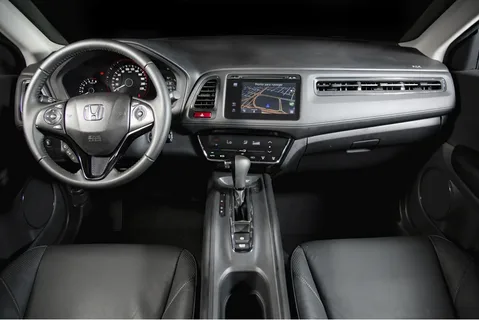The quality of air in our homes is a vital aspect that impacts our health, comfort, and productivity. Indoor air pollutants can cause allergies, respiratory problems, and other health concerns. This is why it is essential to have efficient ventilation systems installed in our homes to ensure proper circulation of air. In this blog post, we will discuss two ventilation systems – HRV System and HVAC – that can significantly improve indoor air quality. We will explore how these systems work and the benefits they provide.
What is HRV and HVAC?
Before we dive into the benefits of using HRV and HVAC systems, it’s important to understand what they are.
HRV stands for Heat Recovery Ventilation, which is a system that’s designed to exchange indoor air with outdoor air while retaining heat or coolness. This system helps regulate the humidity and temperature of a building while bringing in fresh air.
On the other hand, HVAC stands for Heating, Ventilation, and Air Conditioning. This system controls the indoor temperature, humidity, and airflow by heating or cooling the air inside. It also provides ventilation to ensure fresh air is circulating inside a building.
Both HRV and HVAC systems are critical in maintaining air quality inside buildings, making them vital components of any construction project. Understanding the differences and similarities between these systems will help you decide which is the best fit for your building.
The Importance of Air Quality
The air quality in our homes is something we often take for granted, but it plays a crucial role in our overall health and well-being. Poor air quality can lead to a variety of health problems, such as respiratory issues, allergies, and even more serious conditions like asthma or heart disease.
Indoor air can be contaminated by a variety of factors, such as outdoor pollution, chemical emissions from household products, and even bacteria or viruses. This is why it’s important to invest in systems that can improve the air quality in your home, such as HRV and HVAC systems.
In addition to the health benefits, improving your indoor air quality can also have a positive impact on your home’s energy efficiency. A more efficient system means you can save money on energy costs in the long run, while also reducing your carbon footprint.
Don’t underestimate the importance of clean, fresh air in your home. By investing in HRV or HVAC systems, you can enjoy a healthier, more comfortable living environment, and help protect yourself and your loved ones from harmful pollutants.
Benefits of Using HRV System
The benefits of using an HRV system cannot be overstated when it comes to improving air quality in your home or office. Here are just a few of the many advantages of using an HRV system:
- Reduces Indoor Pollution: HRV systems can help to reduce the levels of indoor air pollution in your home or office. These systems use filters to remove harmful particles such as dust, allergens, and smoke from the air, ensuring that the air you breathe is clean and healthy.
- Maintains Optimal Humidity Levels: The HRV system is also effective at maintaining optimal humidity levels in your home or office. This is essential for preventing the growth of mold and mildew, which can cause respiratory problems and other health issues.
- Reduces Energy Costs: The HRV system is highly energy-efficient, meaning it can help to reduce your energy costs significantly. The system recovers heat from the exhaust air and uses it to preheat the fresh air being brought in, meaning your heating system doesn’t need to work as hard.
- Provides Better Ventilation: One of the biggest benefits of using an HRV system is the improved ventilation it provides. This system continuously circulates fresh air into your home or office, ensuring that stale air is replaced with fresh air at all times.
- Increases Comfort: The HRV system helps to regulate indoor air quality, ensuring that the temperature and humidity levels are at an optimal level. This creates a comfortable environment, which is especially important if you spend a lot of time indoors.
In summary, an HRV system is an excellent investment if you want to improve the air quality in your home or office. Not only will it help to maintain optimal humidity levels, but it will also reduce energy costs, provide better ventilation, and increase comfort.
Benefits of Using HVAC System
Heating, ventilation, and air conditioning (HVAC) systems are designed to provide temperature control and regulate air quality in indoor spaces. The benefits of using an HVAC System are numerous and can greatly impact the overall health and comfort of those inside a building. Here are some of the benefits of using an HVAC system:
- Improved Air Quality: HVAC systems have filters that trap and remove pollutants such as dust, dirt, pollen, and mold spores from the air. By doing this, the system improves the air quality in the building, making it healthier for occupants to breathe.
- Temperature Control: HVAC systems allow you to control the temperature inside a building, which means that you can keep the indoor environment at a comfortable level, regardless of the outdoor temperature.
- Energy Efficiency: HVAC systems are designed to be energy-efficient, which means they use less energy to provide heating and cooling than traditional heating and cooling systems. This can save you money on your energy bills.
- Improved Humidity Control: HVAC systems can also control the humidity level inside a building. This is important because high humidity levels can lead to mold growth, while low humidity levels can cause dry skin and respiratory problems.
- Noise Reduction: HVAC systems are designed to be quiet, which means they won’t disrupt the occupants of the building. This is particularly important in buildings such as hospitals, schools, and offices, where a quiet environment is essential. While HVAC systems are a great way to regulate temperature and improve air quality, there is another system that can further enhance these benefits: Heat Recovery Ventilation (HRV).
HRV vs. HVAC: Which System is Better?
When it comes to choosing between HRV and HVAC systems, it really depends on what you’re looking for. Both systems have their own advantages and disadvantages.
HRV systems are great for improving indoor air quality. They are designed to remove stale air and replace it with fresh, outdoor air. This is especially important in areas with high humidity or pollution levels. HRV systems also help regulate temperature and humidity levels, making your home more comfortable.
On the other hand, HVAC systems are more focused on heating and cooling your home. They work by circulating air through your ducts and using a heat exchanger to control temperature. While they don’t directly improve air quality, they do help regulate temperature and humidity levels, which can help prevent the growth of mold and other allergens.
So, which system is better? It really depends on your specific needs. If you’re concerned about improving air quality and humidity levels, then an HRV system is the way to go. If you’re more concerned about heating and cooling your home, then an HVAC system might be the better option.
It’s also important to consider the size and layout of your home. HRV systems are generally better suited for smaller homes, while HVAC systems are more appropriate for larger homes or buildings.
Ultimately, the decision comes down to your specific needs and preferences. Consider the size of your home, your air quality concerns, and your heating and cooling needs when choosing between HRV and HVAC systems. Both options can help improve indoor air quality and make your home more comfortable. However, it’s important to note that both HRV and HVAC systems can work together to provide even better air quality and temperature regulation. By combining these systems, you can enjoy the benefits of fresh air exchange and precise temperature control. Plus, you can reduce energy costs and save money on your utility bills.
Overall, investing in either an HRV or HVAC system can make a significant difference in the air quality of your home. Poor air quality can have negative effects on your health, such as increased risk of respiratory problems and allergies. By choosing to install one of these systems, you can breathe easier and feel more comfortable in your home. So, don’t hesitate to take the steps necessary to improve your indoor air quality today! However, before making any decisions, it’s important to consult with a professional HVAC technician or contractor to ensure that you choose the best system for your needs. They can evaluate your home and provide recommendations based on your specific needs and budget.
Conclusion
Improving air quality is essential to maintaining a healthy and comfortable living or working space. Both HRV and HVAC systems offer benefits that can contribute to improved air quality in your home or workplace. HRV systems provide fresh air without losing heat or cool air, while HVAC systems provide heating and cooling to maintain comfortable indoor temperatures. In terms of which system is better, it ultimately depends on your specific needs and preferences. Consider the size of your space, your budget, and the type of air quality you want to achieve when choosing between the two. By investing in either HRV or HVAC systems, you can enjoy the benefits of improved air quality and a healthier, more comfortable living or working environment.
| Other Good Articles to Read |
| Blogs Rain |
| Cme Blog Spot |
| Garcias Blogs |
| Yyc Blogs |
| Guiade Blogs |
| Blogs-Hunt |
| Smarty Blogs |
| Ed Blog |
| Mo Blogs |
| Blogs Em |
| Blogs T |

